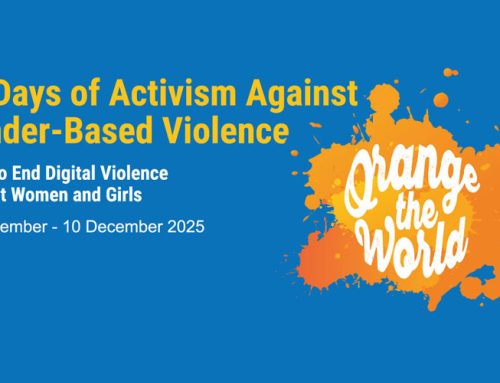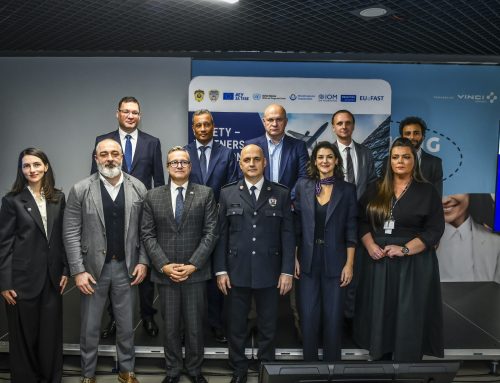The problem of illicit small arms and light weapons (SALW) in the Western Balkans in general, and Serbia in particular, is a serious one, fueling crime and insecurity and posing a serious constraint on the long-term economic and social development of the country. The estimated numbers of illicit weapons circulating in Serbia alone, which range from 200,000 to 900,000 pieces, speak for themselves.
Serbian Parliament passed the new and long-awaited Law on Weapons on 20 February 2015, with a three-month-long legalization campaign declared and initiated on 4 March – ending on 4 June 2015. The aim of the campaign is to decrease the number of illicit weapons by encouraging both their surrender and their registration.
The European Union (EU) welcomes and supports the efforts made by the Serbia government to tackle this issue by passing the Law on Weapons and subsequently declaring a legalization campaign. Furthermore, the European Union is supporting the implementation of the legalization campaign with the funds secured through the EU Council Decision 2013/730/CFSP in support of SEESAC disarmament and arms control activities in South East Europe.
Surrender and registration are the most efficient mechanisms for lowering the number of illegal weapons, Head of the Administrative Department at the Serbian Interior Ministry, Ms. Zorica Loncar-Kasalica, told the media. Owners can handover all types of weapons and ammunition at the closest police station. They will not be asked to provide proof of origin and they will not be charged for illegally purchasing and holding the said weapons, Kasalica explained.
“Since the legalization began, 619 weapons have been handed over, including a ‘disposable anti-tank rocket launcher’ as well as 137 bombs and explosive devices” Kasalica emphasized when speaking about the results of the campaign in the first three weeks. Also, 15,879 pieces of ammunition have been collected during this time, significantly higher than 11,566 pieces collected during the entire campaign in 2007, Kosalica added. The police also received 385 requests for registering weapons, she said.
Neighboring countries have had similar experiences and are undergoing similar processes. An amnesty, focused on the surrender of weapons and coupled with a collection campaign “Choose Life without Weapons”, was in force throughout Bosnia and Herzegovina in 2014. As a result of the campaign, over 11,000 pieces of SALW and their parts were collected. The EU supported the implementation of the campaign through SEESAC. In Croatia, an amnesty has been ongoing since 2007 coupled with several collection campaigns. From May 2010 through December 2011, EU supported the implementation of the campaign “Less Weapons, Less Tragedies” through SEESAC, when Croatian Ministry of Interior collected 1,753 pieces of legal and illegal weapons, 16,368 pieces of illicit fragmentation weapons, 818,153 pieces of ammunition and 620kg of explosives. In Montenegro, the new Law on Weapons was passed on 27 February of this year, envisaging an immediate, two-year long legalization campaign. Through SEESAC, EU will be supporting the campaign from mid-May until the end of December 2015.
“Together with EU, we have been able to reduce the amount of unwanted and surplus light weapons and ammunition in the Western Balkans region by approximately 300,000 pieces since 2002”, said Ivan Zverzhanovski, Coordinator of UNDP’s SEESAC initiative. “Working together and sharing information and knowledge were crucial in achieving this result”.
The efforts made by the Serbian government to tackle this issue by passing the Law on Weapons were welcomed in the Parliament, where the law was passed unanimously. However, the issue requires more strategic preparation.
“The decision of the Parliament to amend the Law by pushing the beginning of the campaign to an earlier date than initially planned, did not give enough time to the Ministry to disseminate needed information and to provide clear messages”, an expert on the issue from civil society, Svetalna Djurdjevic-Lukic, noted.
The effects of these illicit SALW are not restricted to Serbia, but can be felt beyond its borders throughout Europe. Given the gravity of the problem, the EU also calls for a more long term, strategic and holistic approach to be employed. The passing of a new law, and a newly found focus of the Ministry of Interior on the issue, can be used to reinvigorate the work of the SALW Commission, which includes all relevant ministries and institutions, and can thus ensure a much needed multi-sectorial and overarching approach to the problem of illicit SALW. Furthermore, such a complex issue surely requires long-term attention. Thus, the EU supports the extension of the current legalization campaign, preceded by a more strategic preparation.




